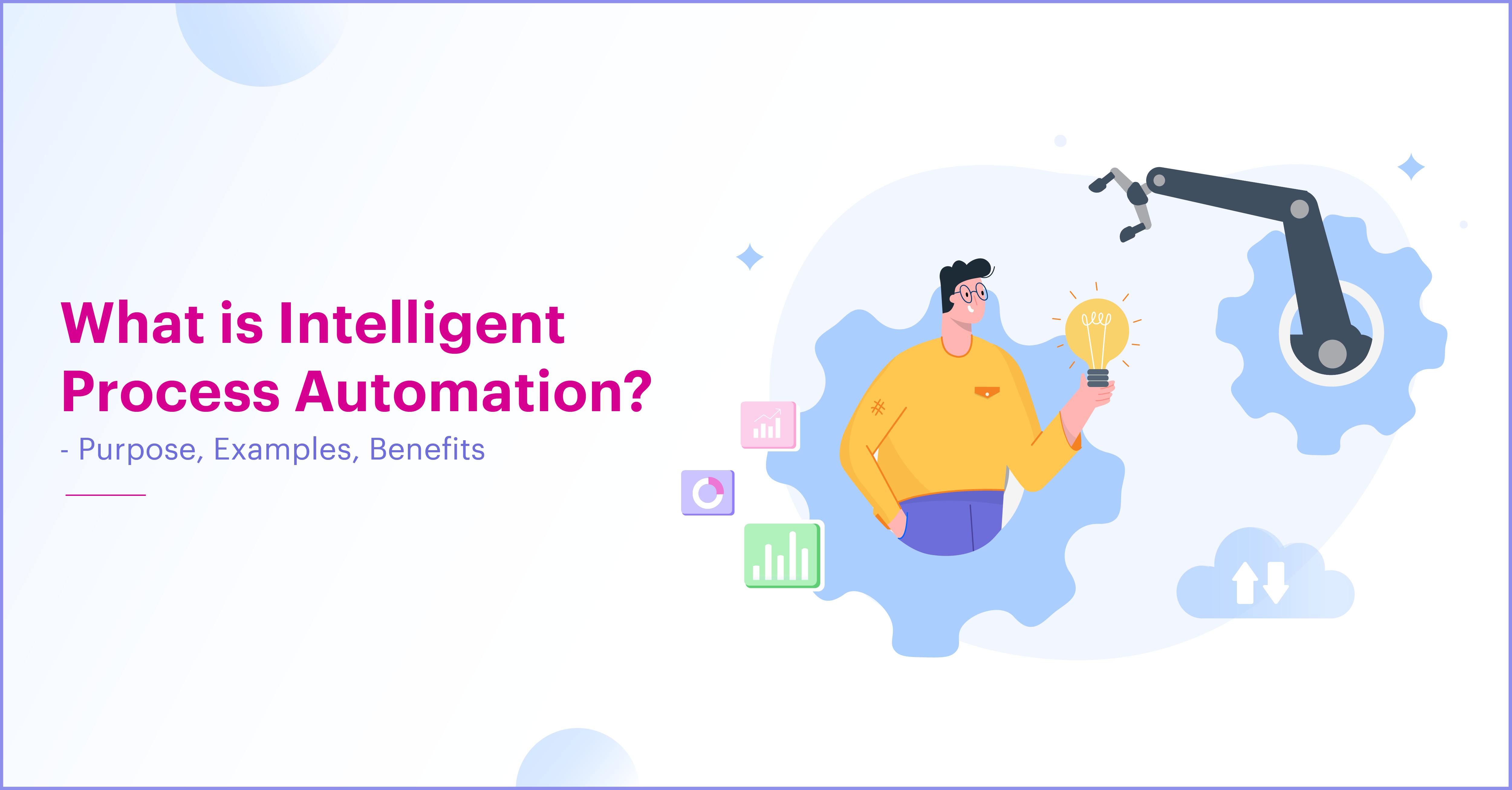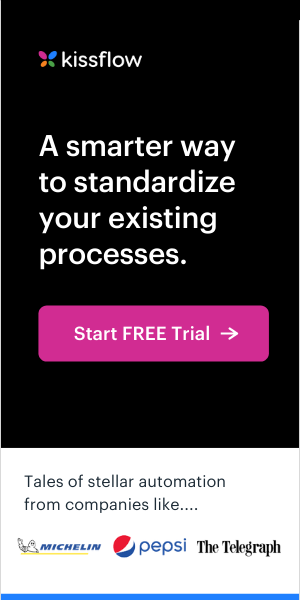An Ultimate Guide to Intelligent Process Automation (IPA) for 2024

The rising pressure on organizations to increase profit margins, deliver an impressive customer experience, and achieve higher returns on investments has enhanced the need for digital transformation. As technologies like machine learning (ML), natural language processing (NLP), and artificial intelligence (AI), have become popular, they have created new avenues for automating manual processes for increased productivity and round-the-clock availability. This has led to the emergence of Intelligent Process Automation (IPA). IPA solves the business challenges most brands face today. Companies in different industries now use IPA to automate 50% to 70% [1] of tasks.
Table of Content
- What is Intelligent Process Automation?
- What is the Main Purpose of Intelligent Process Automation?
- Intelligent Process Automation vs Robotic Process Automation
- Benefits of Intelligent Process Automation
- How Can IPA Help Your Business?
- How to Kickstart Your IPA Transformation Journey?
- IPA: The New Wave of Digital Innovation
What is Intelligent Process Automation?
Intelligent Process Automation (IPA) is a combination of advanced technologies, such as Artificial Intelligence (AI), machine learning, and robotic process automation (RPA), which work together to streamline and improve business processes.
What is the Main Purpose of Intelligent Process Automation?
IPA enables organizations to automate processes with unstructured data like images and text. And it doesn’t require huge training data sets or rule-based decision-making. It assists the knowledge worker by getting rid of repetitive, replicable, and routine tasks.

#Free eBook
Process Automation - Transforming Complexity to Productivity
Thank you for Showing Interest
Our Team will contact you soon
Intelligent Process Automation vs. Robotic Process Automation
Robotic process automation automates simple, rule-based, repetitive tasks–tasks that are time-consuming when done manually. For example, an RPA tool can be programmed to collect phone numbers from applications. However, because RPA tools are rule-based, they are rigid. If a customer enters information in the wrong place, the RPA tool won’t successfully complete the task.
When RPA is no longer effective, intelligent process automation steps in. By leveraging artificial intelligence, it completes more complex processes that include a variety of new and emerging technologies.
Benefits of Intelligent Process Automation
1. It Helps Organizations to Understand Unstructured Data
Without question, RPA can perform tasks faster than humans. But it is ineffective when confronted with the unknown–it just can’t understand unstructured data. This is where IPA shines. Designed for unstructured content, it uses features like optical character recognition to obtain data from unstructured sources like images, text, and documents.
Intelligent process automation software can also convert the data it collects into structured content that RPA software can handle. Any business using RPA can significantly improve agility and operational efficiency by enhancing workflows with IPA.
2. IPA Reduces Operational Costs and Boosts Revenue
Many automation solutions lack situational awareness, and human intervention is needed when something doesn’t work as planned. According to Gartner [2] , intelligent business process management software (iBPM) is effective because it has predictive power and focuses on data timeliness, context granularity, and actionability. Its sophisticated abilities allow organizations to decrease employee input and reduce operational costs. With time, this leads to increased revenue.
3. Intelligent Process Automation Software Improves with Experience
Most workflow tools heavily rely on humans to know the appropriate actions. And when a one-size-fits-all approach is used, even the most effective automation tool can cause workflow hiccups that require human help. Intelligent process automation can work autonomously and get better over time. It uses machine learning algorithms instead of hardcoded rules to make process decisions.
See how our Process Automation Software can make your workplace faster and more efficient.
How Can IPA Help Your Business? Intelligent Process Automation Examples and Use Cases
Intelligent Process Automation can enable your organization to improve productivity, reduce operational costs, and deliver better customer experiences. It can be used in a variety of industries–from finance to manufacturing. Here are a few use cases for IPA.
1. Data Collection
Instead of your customer service reps collecting customer data from different platforms, an IPA tool can do the job. It can gather data from the database and update records with information found in emails and phone calls.
2. Insurance
Some claims departments in insurance firms spend a lot of time entering data from claims forms into CRMs. IPA software can pull the important data from the forms and input it into the CRM.
3. Shipping
You can use an IPA tool to analyze shipping data and optimize shipping routes and schedules to prevent delays, maximize the available resources, and reduce bottlenecks.
Say no to chaotic work. Automate your tasks now.
How to Kickstart Your IPA Transformation Journey
-
Start with Business process modeling and mapping
-
Get robust intelligent process automation software to map and integrate intelligent automation into workflows
-
Focus on process reengineering. Redefine workflows, processes, subprocesses and tasks to transform the way work is done
-
Ensure a seamless experience and keep making the necessary changes.

IPA: The New Wave of Digital Innovation
Many organizations now understand that RPA has its limits and have adopted Intelligent Process Automation. IPA mimics the work done by humans and, over time, learns to do it better. It is the go-to tool for businesses looking to increase worker performance, enhance efficiency, reduce operational risks, and improve customer journey experiences.
Have you tried Kissflow Process?
If you’re ready to take your business to the next level, Kissflow can provide you a delightful automation experience. It is a cloud-based, no-code application, which doesn’t require extensive IT support to set it up. An intuitive visual designer and drag-and-drop form builder will ensure that designing and automating your business processes is a breeze.
Kissflow also caters to your data security needs with role-based access. This means you can control who has access to specific data.
Kissflow Process offers a unique approach to BPM with a visual editor. Sign up for a free trial and experience it personally.
